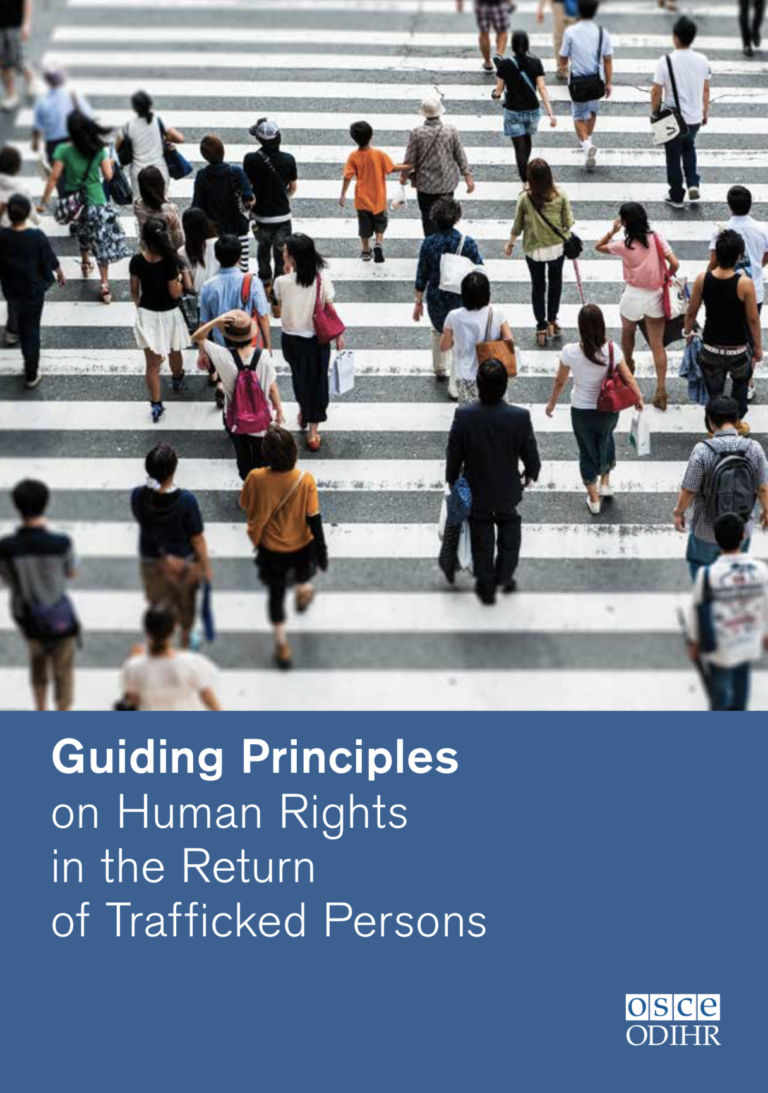These present guiding principles are intended for use by state authorities and civil society bodies, as well as inter-governmental organizations in the OSCE region involved in developing, applying, evaluating and reforming national laws, policies and practices related to trafficking, in particular to the return of trafficked persons. They provide the target audience with guidance that can be used to direct policies, procedures and practices on the return process, as well as an overview of relevant international standards. The guiding principles can also serve as an advocacy tool for civil society organizations that support a rights-based approach to combating trafficking.

